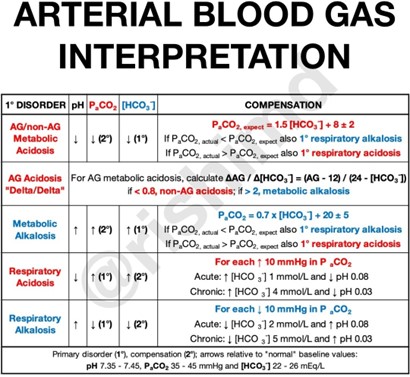During a Cardiac Stress test, a patient complains of chest pain while running The chest pain subsides when he stops running and is relaxed. The patient is diagnosed with Stable angina and is given education by the nurse. He understands the lack of muscles is causing stable angina during exercise.
Electrolytes
Oxygen
Potassium
Hemoglobin
The Correct Answer is B
During exercise, the heart has to work harder to pump blood and oxygen to the muscles. In patients with stable angina, there is a partial blockage of the coronary arteries, which reduces blood flow and oxygen delivery to the heart muscle. This lack of oxygen to the heart muscles causes chest pain or discomfort, which subsides when the patient stops exercising and is relaxed.
Therefore, it is important for the patient with stable angina to avoid activities that trigger chest pain, take prescribed medications, and make lifestyle modifications to manage their condition.

Nursing Test Bank
Naxlex Comprehensive Predictor Exams
Related Questions
Correct Answer is A
Explanation
In case of suspected ingestion of a poisonous substance, the priority response of the poison control nurse should be to assess the child's vital signs, especially breathing and heart rate, to determine if the child is experiencing any immediate life-threatening symptoms. This information will help the nurse determine the appropriate course of action, such as whether to instruct the caregiver to perform CPR or to immediately call for emergency medical assistance.
Asking about the substance ingested and the time of ingestion are also important pieces of information to gather, but they should not take priority over assessing the child's vital signs. Inducing vomiting is generally not recommended unless instructed to do so by a medical professional, as it can cause further harm if the substance ingested is corrosive or caustic.
Correct Answer is B
Explanation
Respiratory alkalosis is a condition in which the blood pH is elevated due to a decrease in the partial pressure of carbon dioxide (CO2) in the blood. This can occur when a person breathes too rapidly or deeply (hyperventilation), causing them to exhale too much CO2. In this option, the pH is elevated (normal range is 7.35-7.45), the CO2 is low (normal range is 35-45 mmHg), and the bicarbonate (HCO3) level is within the normal range (22-26 mEq/L), which are all consistent with respiratory alkalosis.

Whether you are a student looking to ace your exams or a practicing nurse seeking to enhance your expertise , our nursing education contents will empower you with the confidence and competence to make a difference in the lives of patients and become a respected leader in the healthcare field.
Visit Naxlex, invest in your future and unlock endless possibilities with our unparalleled nursing education contents today
Report Wrong Answer on the Current Question
Do you disagree with the answer? If yes, what is your expected answer? Explain.
Kindly be descriptive with the issue you are facing.
